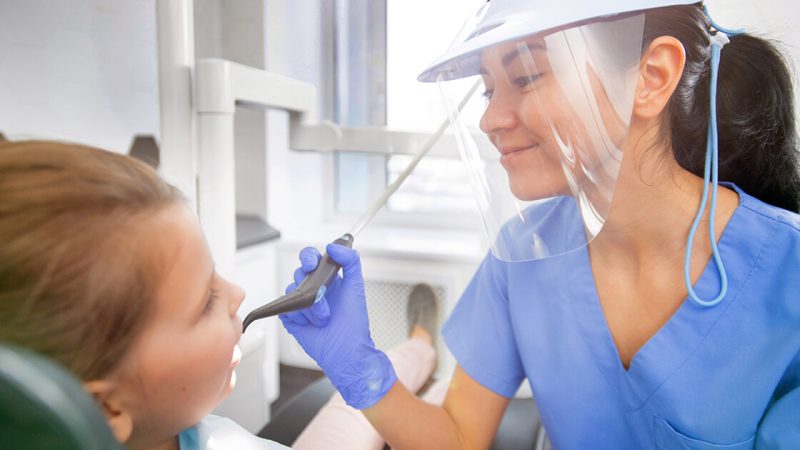With remarkable advancements in orthodontics, Clapham denizens are grinning wider than ever, thanks to clear braces. As the modern answer to metal braces, clear braces Clapham are an aesthetic, less intrusive alternative that is revolutionising the landscape of orthodontics in Clapham. In addition to their near-invisible appearance, which makes them a favourite among adults and teenagers, clear braces also offer enhanced comfort and effectiveness. They not only align teeth perfectly but also contribute to improved oral health. By blending seamlessly with one’s natural teeth, clear braces ensure that one can smile with confidence during and after the treatment. Essentially, in the world of orthodontics in Clapham, clear braces are not just a trend; they are a revolutionary solution that is here to stay.
The Evolution of Braces: A Brief Historical Perspective
Orthodontics has come a long way since its inception, with braces evolving significantly over the centuries. The earliest braces were constructed from natural materials like bone and catgut, with metal bands first used in the 1900s. The breakthrough of stainless steel in the 1960s marked another milestone, making braces more accessible and effective. However, these traditional braces were often conspicuous and uncomfortable, leading to the search for a more aesthetic solution. This quest culminated in the advent of clear braces, a revolutionary development that combined efficacy with aesthetics. Today, clear braces are transforming orthodontics in locales across the globe, including Clapham, offering a modern, less intrusive alternative to traditional braces.
The Rise of Clear Braces: A Modern Solution
The rise of clear braces is undeniably reshaping the orthodontics scene. This modern solution offers a subtle approach to teeth alignment, making it the preferred choice for many. Unlike traditional metal braces, clear braces are virtually invisible and can be removed for eating, drinking, and cleaning. This ease of use coupled with aesthetic appeal has led to their soaring popularity. They are designed with advanced technology, ensuring efficient teeth movement while maintaining optimal comfort. The combination of discretion and effectiveness makes clear braces the go-to solution for many individuals. In places like Clapham, the adoption of clear braces is growing, reflecting a broader global trend that prioritises aesthetics and comfort in orthodontic treatment.
Clear Braces in Clapham: Transforming Smiles
In the heart of Clapham, clear braces are transforming smiles and boosting the confidence of locals. More and more individuals are opting for this modern, less conspicuous solution to perfect their smiles. Orthodontists in Clapham are highly skilled in providing clear braces, ensuring a personalised approach that caters to individual alignment needs. Whether it’s minor adjustments or more significant alignment issues, clear braces provide an efficient solution while being nearly invisible. This revolutionary orthodontic solution is enhancing oral health, and bringing about radiant, confident smiles across Clapham.
Efficacy and Comfort: The Dual Advantage of Clear Braces
Clear braces offer a dual advantage that sets them apart from traditional braces: efficacy and comfort. With advanced technology, clear braces provide precise control over teeth movement, ensuring effective alignment. They are custom-made for each individual, allowing for a perfect fit and optimal results. Moreover, clear braces are comfortable to wear, thanks to their smooth, plastic construction that eliminates the discomfort associated with metal wires and brackets. The fact that they can be removed for meals and cleaning further enhances their convenience. Thus, individuals can proceed with their daily routines without any hindrance, making clear braces a highly favourable orthodontic solution.
Caring for Your Clear Braces: Top Tips
Maintaining clear braces is straightforward, ensuring they remain effective and aesthetically pleasing. Always remove them when eating or drinking anything other than water to prevent staining. Regular cleaning is crucial. Rinse your braces with lukewarm water and brush them gently with a soft toothbrush. Avoid hot water as it can warp the plastic. For oral hygiene, brush and floss your teeth before reinserting your braces. Attend all scheduled orthodontic appointments to ensure proper alignment progress. Following these simple tips can prolong the life and efficacy of your clear braces, guaranteeing that radiant Clapham smile.
The Future of Orthodontics: Clear Braces Leading the Way
The future of orthodontics is here, and clear braces are leading the charge. With their aesthetic appeal, comfort, and efficacy, clear braces are rapidly becoming the preferred choice for teeth alignment. Innovative technologies ensure precise control and movement of teeth, offering a personalised solution for each individual. In Clapham, this orthodontic revolution is evident, with numerous locals opting for clear braces to perfect their smiles. As technology continues to advance, we can expect to see clear braces becoming even more effective and convenient. They’ve already revolutionised orthodontics in Clapham and beyond, and they’re set to shape the future of the industry.
















